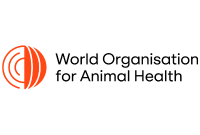World Organisation for Animal Health
African horse sickness (AHS) is a serious infectious disease affecting all species of equids, characterised by alterations in the respiratory and circulatory function and a high mortality rate in horses. AHS is endemic in Africa, where it is transmitted by at least two species of Culicoides. Nine different serotypes have been described. Laboratory diagnosis of AHS is essential. Although the clinical signs and lesions are characteristic, they can be confused with those of other equine diseases such as anthrax, equine infectious anaemia, equine viral arteritis, trypanosomosis, and equine encephalosis, et al.
AHS (due to AHS virus serotype 1) has been reported in Thailand in March 2020 for the first time (official status reports on AHS are linked below). This represents AHS' first known incursion into Asia (since a previous appearance in South Asia over 50 years ago) and poses a significant challenge to the equine industry and Veterinary Services at both the national and regional levels.
The World Organisation for Animal Health (WOAH, founded as OIE) provides science-based standards, guidelines and recommendations for the prevention and control of AHS, diagnosis of AHS virus infection and production of high-quality vaccines. This page compiles relevant information and WOAH recommendations and material on AHS. In the Asia Pacific region, we support Member Countries to prevent and control AHS in collaboration with local key stakeholders.
